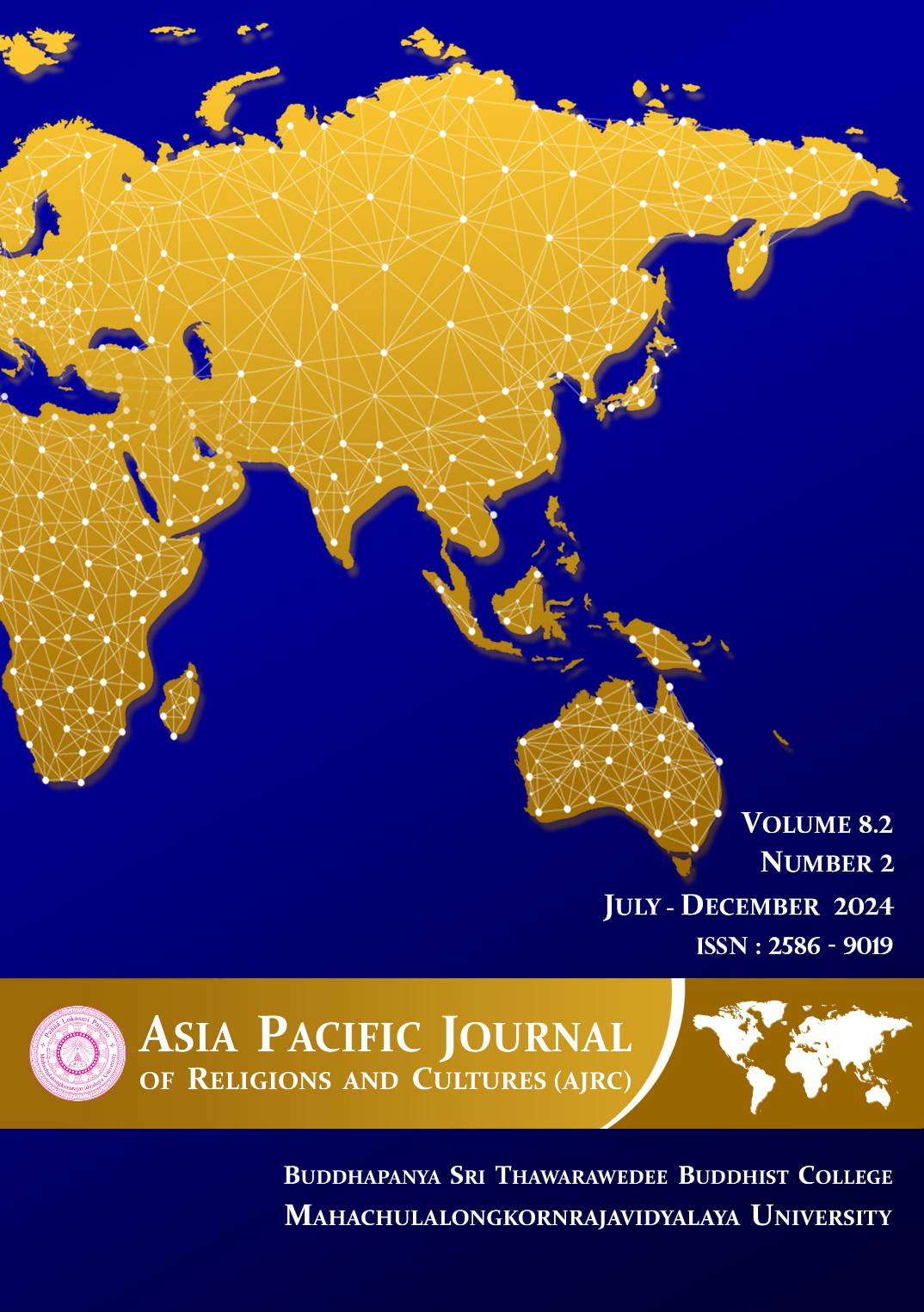GOVERNMENT BEHAVIOR IN THE CONSTRUCTION OF SMART TOURISM CITY IN GUILIN CITY, GUANGXI ZHUANG AUTONOMOUS REGION, PEOPLE’S REPUBLIC OF CHINA
Main Article Content
Abstract
The objectives of this interview-based qualitative research were: (1) to evaluate a government behavior in the construction and (2) to offer the management and strategic guidance for the development of smart tourism city in Guilin city, Guangxi Zhuang Autonomous Region, People's Republic of China. The research was a qualitative. 20 purposive selected key informants were from the market participants, industry experts, and the general public within the government departments and personnel engaged in the establishment of Guilin's smart tourism city, alongside Guilin residents and tourists by a purposive selection, totaling 20 key informants. Data contents were analyzed for a descriptive summary.
The research results were (1) a government behavior in the construction was inadequate understanding of advanced management concepts, poor coordination among relevant departments, resulting in low integration of smart tourism, the relatively low overall level of informatization application, diverse payment methods in smart tourism cities with a need for network security improvement, insufficient capital investment and low infrastructure construction levels, lacked market supervision, a talent shortage, and information constraints persist. And (2) the management and strategic guidance for the development of Guilin as a leading smart tourism city were 1) acquiring advanced management concepts through learning initiatives, 2) enhancing communication and collaboration between government departments, 3) expediting the construction of smart tourism infrastructure, 4) improving security management measures for mobile payments, 5) refining the plan for capital investment in smart tourism projects, 6) strengthening industry supervision and safeguarding tourists' rights and interests through an established protection system, and 7) promoting the introduction and training of professionals specialized in smart tourism.
Article Details

This work is licensed under a Creative Commons Attribution-NonCommercial-NoDerivatives 4.0 International License.
References
Ajay K. Manrai. (2019). New Perspectives in International Consumer Behavior Research, Journal of Global Marketing.
Aristovnik, et al. (2022). From Neo-Weberian to Hybrid Governance Models in Public Administration: Differences between State and Local Self-Government", Administrative Sciences, 12, 1, 26.
Biegańska, et al. (2017). Characterization of Phenolics, Glucosinolates, and antioxidant activity of beverages based on apple juice with the addition of frozen and freeze-dried curly kale leaves (Brassica Oleracea L. var. APHALA L.) Food Chem, 230 (2017), 271-280.
Buhalis, D. (2019). Smart Tourism Destinations: A Bibliometric Analysis. Tourism Management, 71, 293-323.
Cai, H., et al. (2022). Fiscal Decentralization, Government Behaviour, and Environmental Pollution: Evidence from China. Frontiers in Environmental Science. 10(2022).
Denhardt, J.V., & Denhardt, R.B. (2000). The New Public Service: Serving rather than Steering. Public Administration Review, 60(6), 549-559.
Ghali-Zinoubi, Zohra. (2022). Examining Drivers of Environmentally Conscious Consumer Behavior: Theory of Planned Behavior Extended with Cultural Factor Sustainability. 14(13), 8072.
Grimmelikhuijsen, S et al. ((2017). Do Transparent Government Agencies Strengthen Trust? Information Polity, 14: (3), 173-186.
Guo, J., et al. (2021). Meteorological Factors and COVID-19 Incidence in 190 Countries: An Observational Study Sci. Total Environ, 757 (2021), 143783.
Han, L., et al. (2022). Corrigendum: What Affects China’s High-Tech Industry Land Misallocation: Government Behaviour or Enterprise Behavior? Frontiers in Environmental Science.
Heliyon. (2021). A Retentive Consumer Behavior Assessment Model of the Online Purchase Decision-Making Process, 7(8), e08169.
Huang, Q. et al. (2022). An Empirical Study on the Incentive Mechanism for Public Active Involvement in Grass-Roots Social Governance Based on Stimulus-Organism-Response Theory. Sustainability, 14.
Isensee Carmen's. (2022). Success Factors of Organizational Resilience: A Qualitative Investigation of Four Types of Sustainable Digital Entrepreneurs. Management Decision, 61(5), 1244-1273.
KirkEmerson. (2018). Launching Perspectives on Public Management & Governance. Perspectives on Public Management and Governance, 1(1), 3–4.
Liu, X. (2022). Fiscal Decentralization, Local Government Behavior, and Macroeconomic Effects of Environmental Policy. Sustainability. 14(17), 11069.
Mary Johnson. (2023) The Role of Renewable Energy in Sustainable Development. Renewable Energy Journal, 40, 4(2023), 220.
Osborne, S. et al. (2013). It Takes Two to Tango? Understanding the Co-production of Public Services by Integrating the Services Management and Public Administration Perspectives. British Journal of Management, 24, S31-S47.
Osborne, S. et al. (2016). Co-Production and the Co-Creation of Value in Public Services: A Suitable Case for Treatment? Public Management Review, 18(5), 639-653.
Perry, J. L., & Hondeghem, A. (2008). Motivation in Public Management: The Call of Public Service. Oxford University Press.
Theodorou, A. et al. (2023). The Impact of the COVID-19 Pandemic on Online Consumer Behavior: Applying the Theory of Planned Behavior Sustainability, 15(3), 2545.
Tong, Z., et al. (2021). Refined Assessment and Decomposition Analysis of Carbon Emissions in High-Energy Intensive Industrial Sectors in China Sci. Total. Environ., 872 (2023).
Wang et al. (2016). Locally Downscaled and Spatially Customizable Climate Data for Historical and Future Periods for North America. PLoS ONE, 11(6), e0156720.
Wei Liu et al. (2022). Governance and public administration in China, Policy Studies, 43(3), 387-402.


